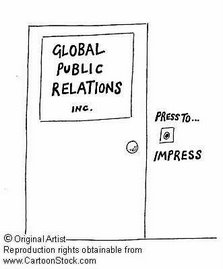What Does A Blog Do for Public Relations Agency/ Industry?

Before the field of Public Relations used to depended on controlling the message, which was put forward from the organization, this was to manipulate public opinion.
However, as I was researching I came across some PR books that talked about what the New Media does for PR industries, and one of the things that was talked about is Blogs, these books considered blogging as a public opinion which no longer has control on what is being said and makes it a more honest conversation with the reader. It also shows us that a blog can cultivate public opinion. It also helps the PR industry break away from some of the myths attached to the industry about it being manipulative. A blog is ideal for delivering messages to the Public and that makes it a good tool for a Public Relations company (Phillips, 2001).
Blogs are now a new interactive way to communicate with current and potential customers. Instead of just being a company or an organisation with a name, blogs help them come alive and not just look to the public as a company name.
This free interaction and narrowing of gap between producers and consumers will help attach a human face to the organisation (Holtz, 2002).
Blogs also provide immediate feedback to discuss about any issues that are concerning the public or even if there is a crisis.
In my opinion, blogs are very effective and they are also very easy to use and create. Anyone can create a blog if they follow properly the footsteps that are given to them when they sign up with one of these blog sites. It is also a new form of communication.
Therefore, one can say that a Blogs are the new tools which helps develop a point to point communication with the consumers, and that also gives the consumers a chance for them to voice their opinions and their concerns.
I believe that Blogs serve two main purposes for Public Relations Agency/ Industry or even any other industry or company. These two main purposes are; firstly it serves as a medium to transmit information to the masses and secondly it also helps receive information from the public in the sense of customer feedback.








